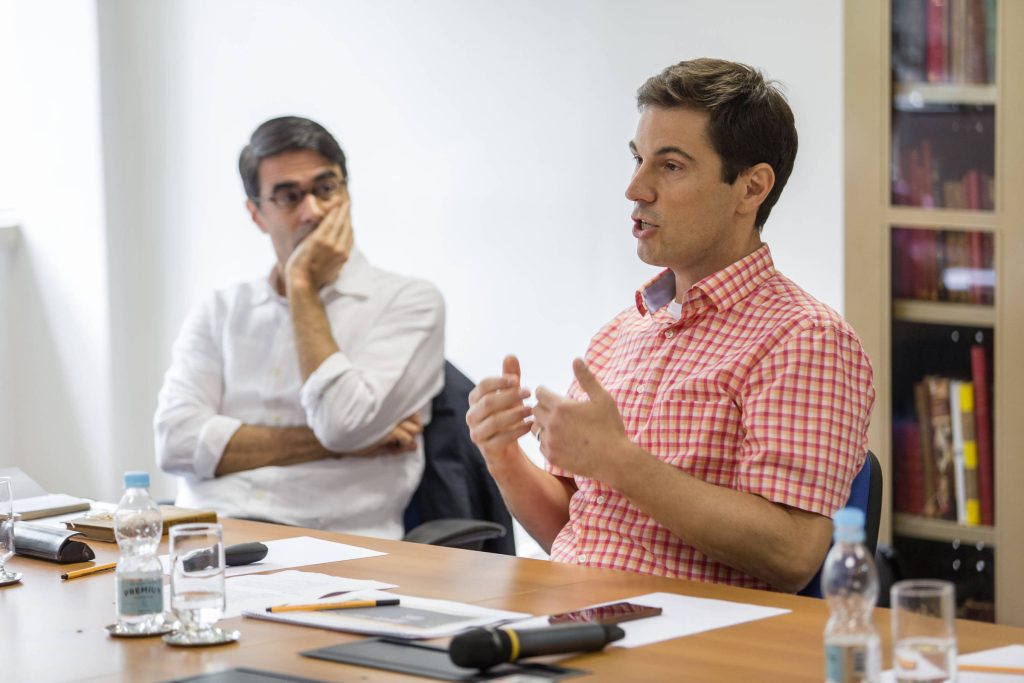The Instituto Serrapilheira, the first private non-profit foundation to fund Brazilian sciences, completed five years of its existence this Tuesday (22). The organization, which subscribes to the Fundamental Science blog at paperhas already invested more than R$50 million in scientific research projects and initiatives aimed at spreading science.
Since its inception, the institute, founded by documentary filmmaker João Moreira Salles and his linguist wife Branca Viana Moreira Salles, has maintained two funding programmes. The first, which supports science, aims to support excellent research by young scientists in the fields of natural sciences, mathematics and computer science.
“Projects sent to public institutions, such as CNPq and Capes, are different from those of Serrapilheira. Projects from public institutions, which are very important, are safer and more peaceful. In Serrapilheira, there is space to reflect on the more serious research,” Hugo Aguilanio, Principal Director Institute.
The second type of program aims at scientific publishing and support Media and journalism projects. “What we’re trying to do is to professionalize scientific communication.”
The director says there is a huge demand for funding for scientific publishing. According to him, in the first call made by Serrapilheira, more than a thousand projects were received from all over Brazil. “When the resources are made available for professionalization, the initiatives that have really managed to get good quality publication begin, that is, there is the professionalization of the field.”
Recently, Serrapilheira opened Internship in Quantitative Biology and Environment, a life sciences program for young people who wish to pursue their Ph.D. abroad.
Aguilaniu says that this initiative started because projects in the fields of biology and the environment in the country were not as prominent as those in other sciences, such as mathematics and physics.
Director says, about this latest initiative by Serrapilheira. Registration for the second training semester Open this Wednesday (23).
For him, Serrapilheira’s future will be more focused on biological sciences and ecology. The idea is that the institute will be able to collaborate for the scientific development of the country so that Brazilian scientists who are in international institutions feel interested in returning.
“Maybe the academic system is not yet attractive to Brazilian talents who have traveled abroad. What I would like to do is modify the system so that the scientific ecosystem is so good that one of those people would think there would be reasonable conditions to come back,” he says, of a cessation strategy. brain imigrante “.
In total, among these various programs, the institute claims to have already invested about R$50 million, in addition to other specific investments.
Despite the importance of the initiative, the director of the institute himself asserts that scientific funding needs to be primarily managed by the government. “The most important funding for science in any country should be public,” he says.
scarcity in brazil
Although important to complement public investment, initiatives such as Serrapilheira are still few in Brazil, says Luiz Eugênio Mello, Scientific Director of Fapesp (Fundação de Amparo à Pesquisa do Estado de São Paulo).
Milo mentions that there are other institutions that support science in the country, such as the Ayrton Sina Institute, but Cerabellira has the peculiarity of being the focus of scientific development.
For Milo, one of the reasons for the lack of initiatives of this kind in the country is the tax base that does not allow exemption from income tax when making charitable donations. Here the percentage of the reduction is limited, while in the US it can be up to the total tax owed.
He concludes, “This heightens the importance of the support that Moreira Salles provided when creating the Serapillera. He is an exemplary icon and makes a huge difference for being a reference for all the great wealth owners in Brazil on how to behave.”

“Hardcore beer fanatic. Falls down a lot. Professional coffee fan. Music ninja.”






More Stories
The law allows children and adolescents to visit parents in the hospital.
Scientists pave the way for the emergence of a new element in the periodic table | World and Science
Can dengue cause hair loss? Expert explains how the disease affects hair